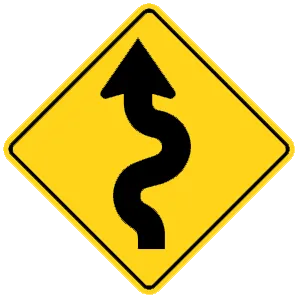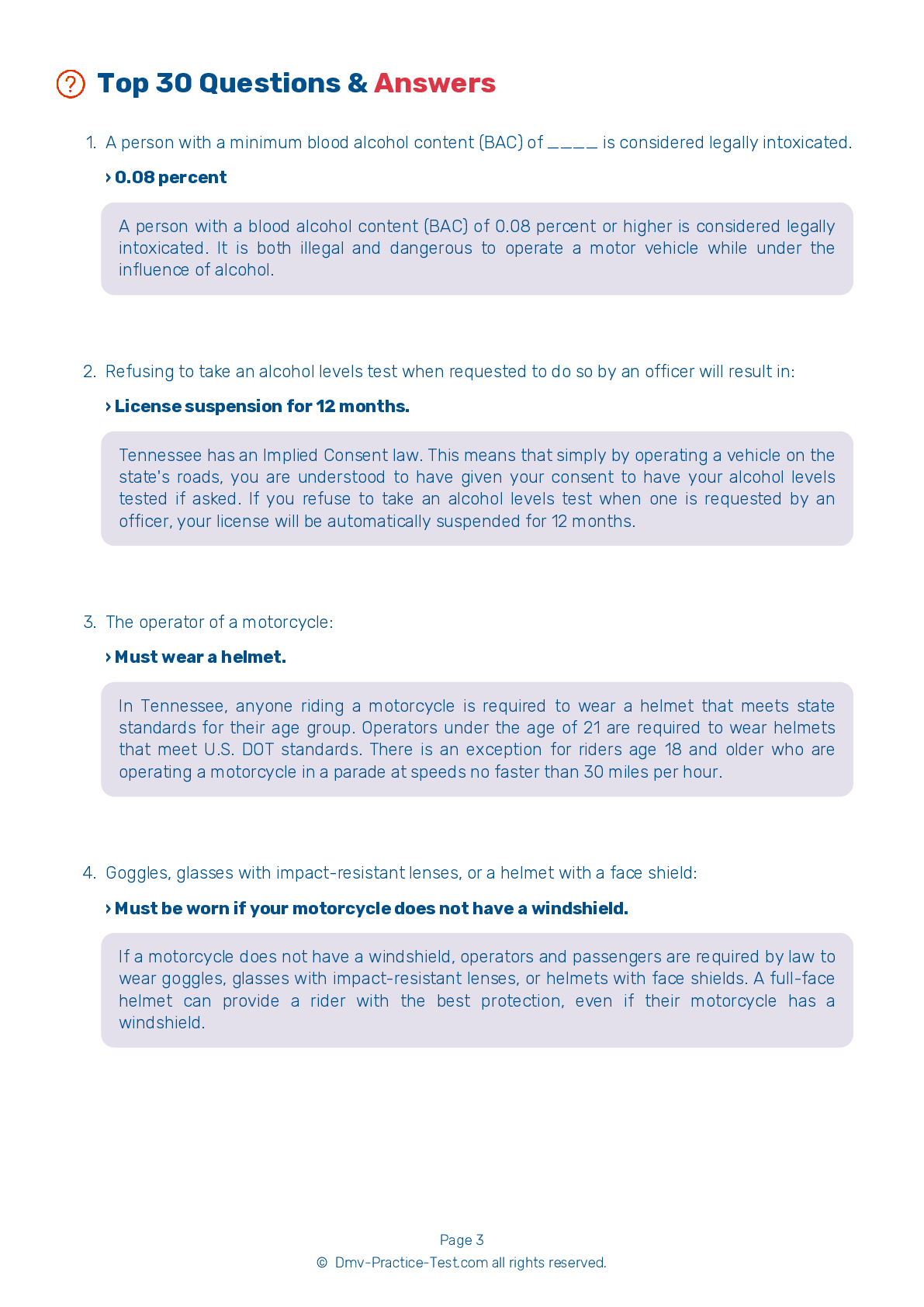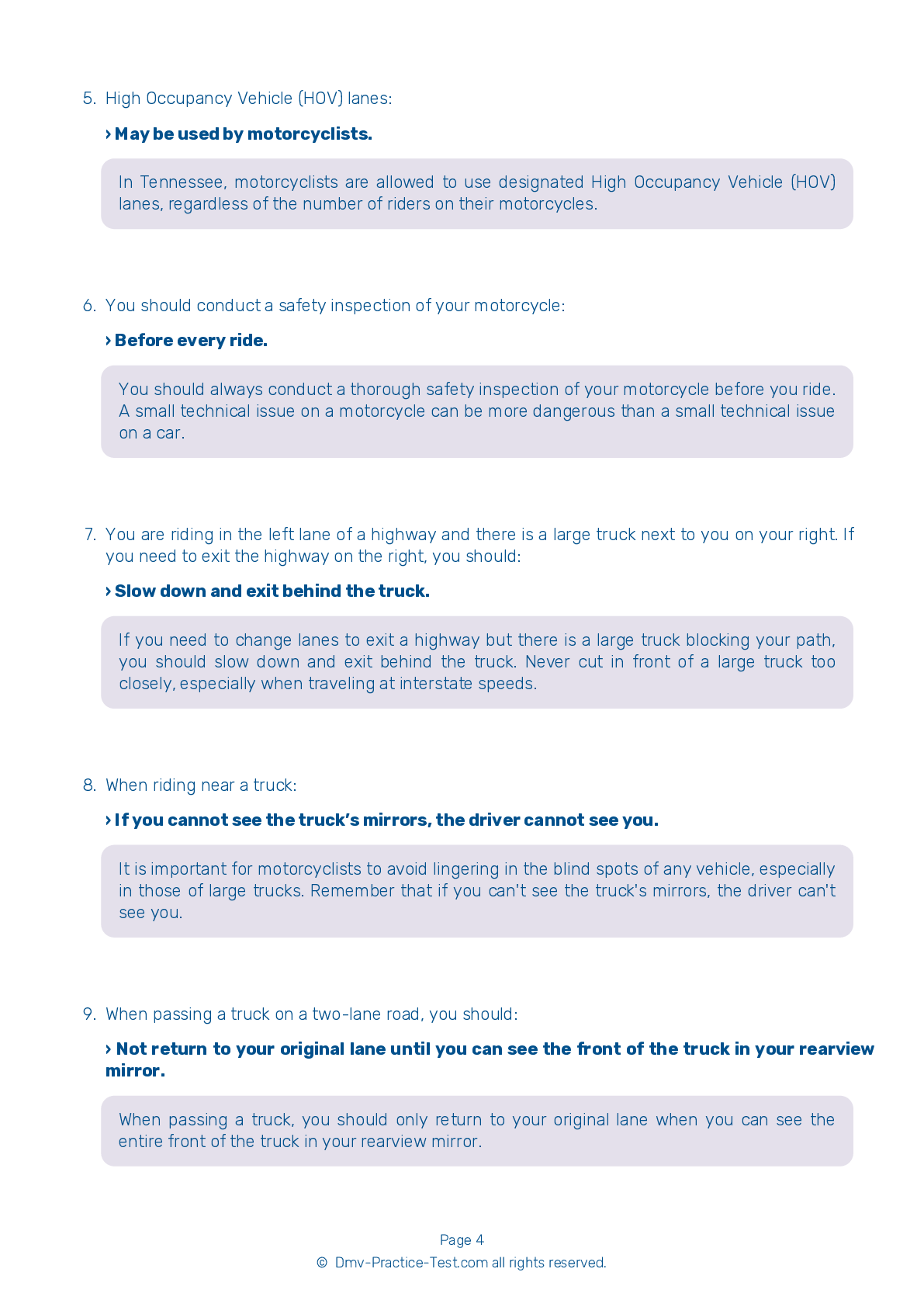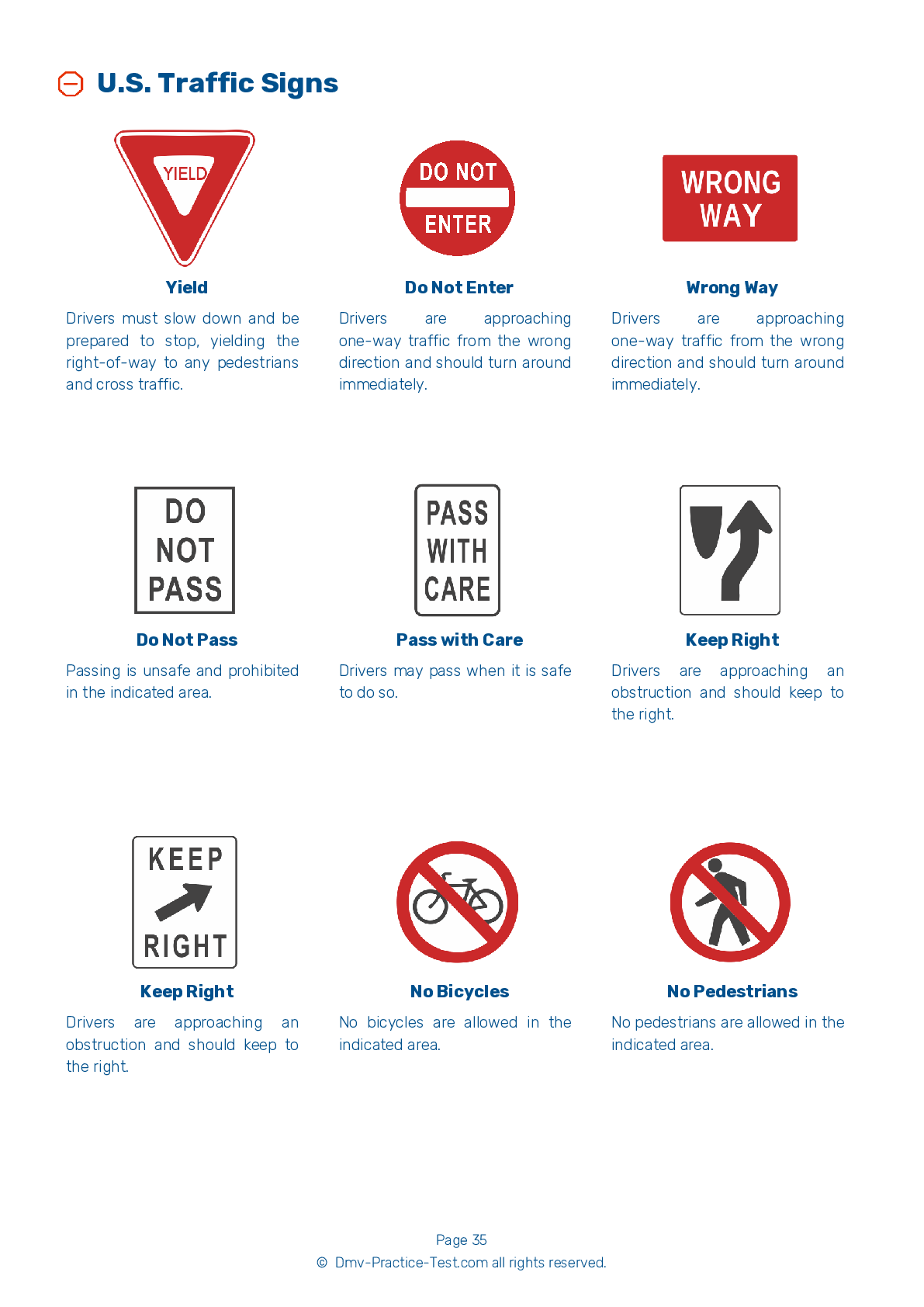Motorcycle Test | License TN 2026 | FREE Online Practice! #2 Page 4 of 4
Take this FREE motorcycle test (license in TN 2026) to check your knowledge of the road rules. To improve your results, download a motorcycle handbook online, study theory, and practice for free on our website. Still worried about how to get a motorcycle license in Tennessee in 2026? Check our website for more sample tests, train as much as possible, and boost your grades!
22 . Your knees should be:
Keep your knees against the gas tank to help with your balance as you turn the motorcycle.
23 . This road sign means:

Warning signs are usually yellow with black markings. This sign warns the driver that there is an upcoming winding road. Speed should be adjusted appropriately.
24 . When riding in the rain, you should:
A road is often very slippery when rain first begins to fall. When it starts to rain, ride in the tire tracks left by cars to get the best traction.
25 . When stopping your motorcycle while carrying a passenger, you should:
A passenger places extra weight on a motorcycle. Because of the added weight, the motorcycle will respond to the operator's movements more slowly than it would otherwise, taking more time to speed up, slow down, and turn. To accommodate the change in handling when carrying a passenger, you should reduce your speed, begin slowing down earlier when you stop, and look for larger gaps when crossing, entering, or merging into traffic.
26 . As your motorcycle increases speed, you will:
It is necessary to shift into higher gears as your motorcycle increases its speed.
27 . If no traffic is present when you are taking a curve on a three-wheeled motorcycle, it is a good idea to start:
If no traffic is present when you are taking a curve while riding a three-wheeled motorcycle, start on the outside of the curve to increase your line of sight and the effective radius of the turn. As you turn, move toward the inside of the curve. As you pass the center, move to the outside to exit the curve. Remain aware of changing road and traffic conditions and adjust as necessary.
28 . When being passed by another vehicle, motorcyclists should be alert to:
When being passed, motorcyclists should be careful not to be hit by any part of the passing vehicle, including its mirrors. In addition to the vehicle itself, motorcyclists should also be aware of wind gusts coming from the passing vehicle and potential objects being thrown by a passenger in the vehicle who may not be paying attention to the road.
29 . Making eye contact with another driver:
You should never take eye contact with another driver as a guarantee that they will properly yield to you. It is not uncommon for a driver to look directly at a motorcyclist and still fail to notice them.
30 . When riding a motorcycle, it is important to:
While it is most important to be aware of what is ahead of you on the road, you cannot ignore what is behind you. You can keep track of the situation behind you by checking your mirrors consistently.
See the exact questions that will be on the 2026 Tennessee DMV exam.
99.2% of people who use the cheat sheet pass the FIRST TIME
Jeneen was tired of paying $5/gallon. She got herself a scooter that required the motorcycle license. She studyed the motorcycle test cheat sheet and passed her test the next day!
Christopher tells us how he knew nothing prior to obtaining the motorcycle study guide, and he only got one question wrong because he clicked on the wrong answer by mistake.



